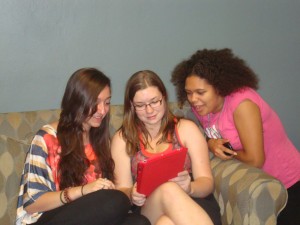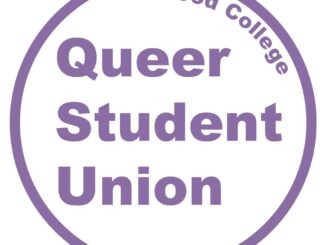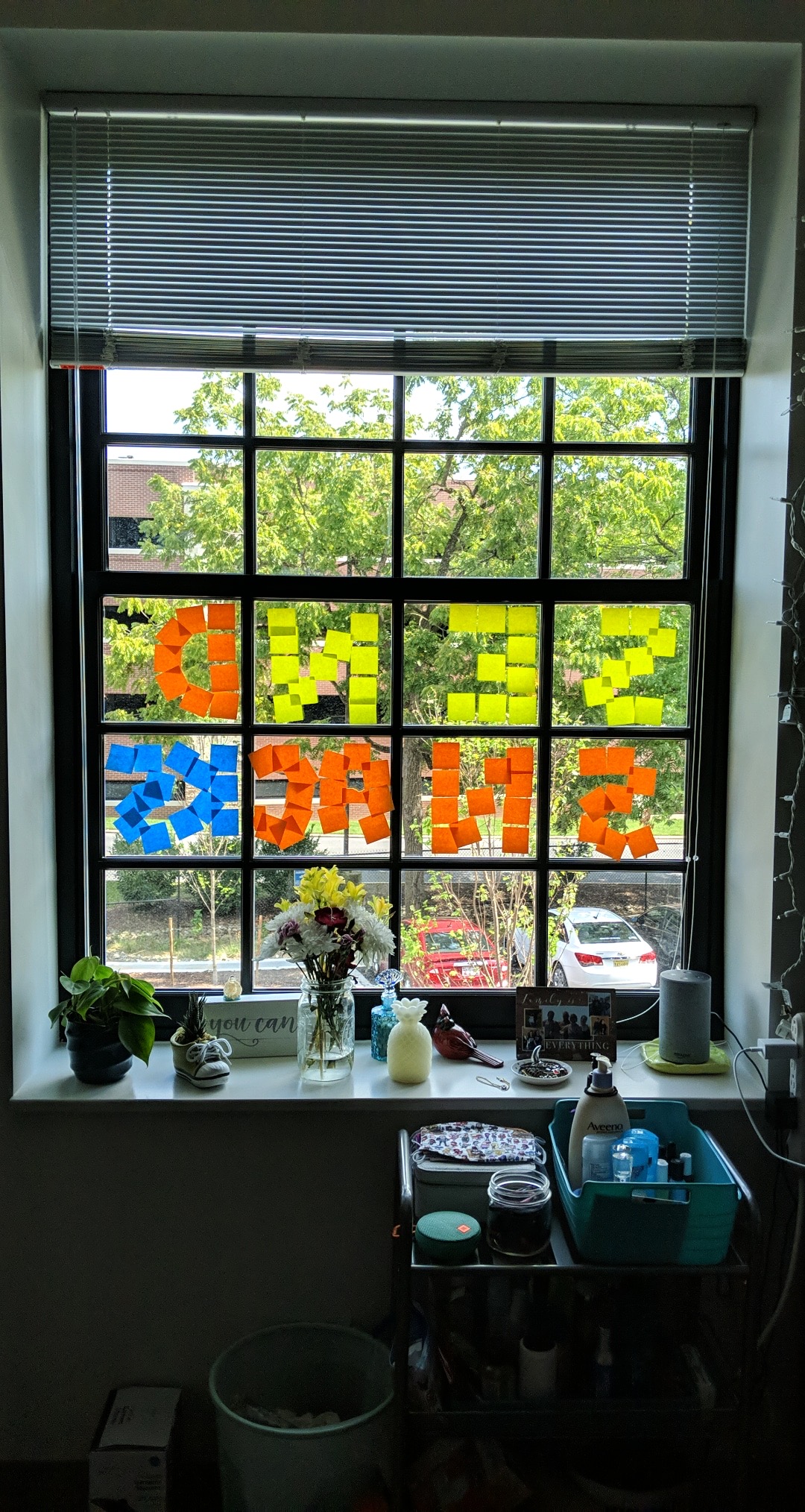By Catherine Collins
Photo by Elaheh Eghbal
Five weeks into the pilot year for the iPad program, there are varying opinions on the technology’s place in a classroom. While some freshman students and professors have tried to incorporate the iPad into their academic pursuits, there remain many who see it as a distracting entertainment device.
“It’s a good thing and a bad thing,” Yeni Balmes, an education major, said of the iPad. “I try not to use it when I’m doing homework, because I get caught on games.”
“I don’t use my iPad in any of my classes,” Nathalie Elsamra, who is considering a major in psychology, said. “People use it more for games and Facebook.”
“I don’t really use the iPad to do much schoolwork,” Thomas Marino said. “I like gaming on it, though.”
Fellow freshmen students Kerri Sheehan, an English major, and Ilana Adler, a social work major, agreed.
Sheehan said that she “mostly uses it for games and Facebook,” and Adler said that games were how she spent the most time on her iPad.
Sheehan said that most freshmen in her classes do bring their iPads to class and that many use Blackboard and take notes on them, but she herself finds it difficult to type on it.
Russell Gingrich pointed out the lack of word-processing software on the iPad as it was given to him.
“I wish it had Word, so I could write essays on it,” he said.
For Ravleen Khlasa, the possibility of having to pay for extra applications is a frustration.
“I don’t mind using my iPad for schoolwork, but I wish that professors would not make students pay money to buy more apps,” Khlasa said. “Granted, some apps are free, but some are specific for each course and they cost extra money.”
Elsamra, along with a number of other freshmen, said that she uses her iPad for Blackboard and her Hood email, but that it’s nothing she can’t do on her laptop as well. Virtually all freshmen students own a laptop in addition to the iPad.
“I use my iPad for two things: Pandora and to check my schoolwork on Blackboard,” said Maggie McGill.
When asked if the free iPad had factored into their decision to attend Hood, most freshmen said that it had played a small or even nonexistent role. For Sheehan, the iPad was “a bonus,” and for Balmes, it was a surprise – she hadn’t known about the iPad handouts before enrolling.
Elsamra said that the free iPad “kind of” factored into her decision, but like other freshmen, it was not the major attraction.
“It’s a cool thing to get people interested, because you’re like, ‘Oh, they have money and new technology,’” she said.
But for Ilana Adler, a social work major, the technology she owns has no place in her academics this semester, since many of her professors don’t allow electronics in the classroom.
“Most teachers don’t let you bring your iPads to class, so there’s no point in doing work on it,” she said.
While some professors forbid all electronics in the classroom, others simply proceed without them.
For English professor Vincent Kohl, the iPad is irrelevant to the coursework he assigns.
“I can’t imagine how it would be useful to me and my students,” said Kohl, who is teaching two 100-level English courses this fall. “Maybe it’s useful in courses that involve quantifying, but what advantage does it have in understanding literature?”
But for Dr. Trevor Dodman, professor of English, the iPad might have some potential. Dodman is teaching a course on T.S. Eliot’s “The Wasteland” this spring, and he is looking into an iPad application that offers the entire original version of Eliot’s complex poem in hypertext.
“The iPad will maybe offer tools for a different way through the poem,” Dodman said. “I think it holds out some neat possibilities.”
The course on “The Wasteland,” however, is a 200-level course that will mostly consist of upper-classmen, so Dodman is trying to envision a way that he himself can present the iPad application to the class as a whole.
“It would be easier if everyone had one,” Dodman said.
Other professors pointed out this issue as well. Virtually no classes are 100% freshmen, and the iPad can’t play a consistent role in learning when only one-third or one-fourth of the class has the technology.
Dodman spoke about his experience leading one of the discussion groups on “A Thousand Splendid Suns” in August, in which some of his group was using hard copies of the novel and others were using the iPad.
“Even the issue of pagination was a problem,” he said. “We took quite a bit of time trying to get everyone on the same page, which was unfortunate.”
Moreover, it’s difficult for professors to become engaged with an electronic device that many of them don’t have experience with. Dodman said that he was planning to spend some time on the iPad circulating around the English department so that he could familiarize himself with the technology that a number of his students own.
“If people don’t own them and aren’t intimately familiar with them, they’re less likely to incorporate them into classes,” said Dr. Eric Annis, professor of biology.
Annis, who is teaching a 100-level biology class this semester that is roughly half freshmen, said that he himself hasn’t looked into using the iPad. Since most of his assignments involve word processing and spreadsheets, he finds that his students are “better off using a computer.”
As a biology professor, he said that he’d like to look into possible multimedia benefits on the iPad.
“If we had textbooks designed for it, with video incorporated into them, that would be great,” he said.
Of the freshmen in his class, Annis said that about half or one-third bring their iPads to class, but that he can’t see what they’re doing on them.
“I get the impression that it’s mostly Facebook,” he said.
Stacey Axler contributed reporting.





Be the first to comment